The large number of mosaics decorating the rooms of the Villa del Casale and the variety of subjects represented, which can be traced back to the end of the 3rd and the first half of the 4th century AD, with evident differences in compositional styles, suggests the intervention of different groups of mosaicists and periods of execution that were not always contemporary.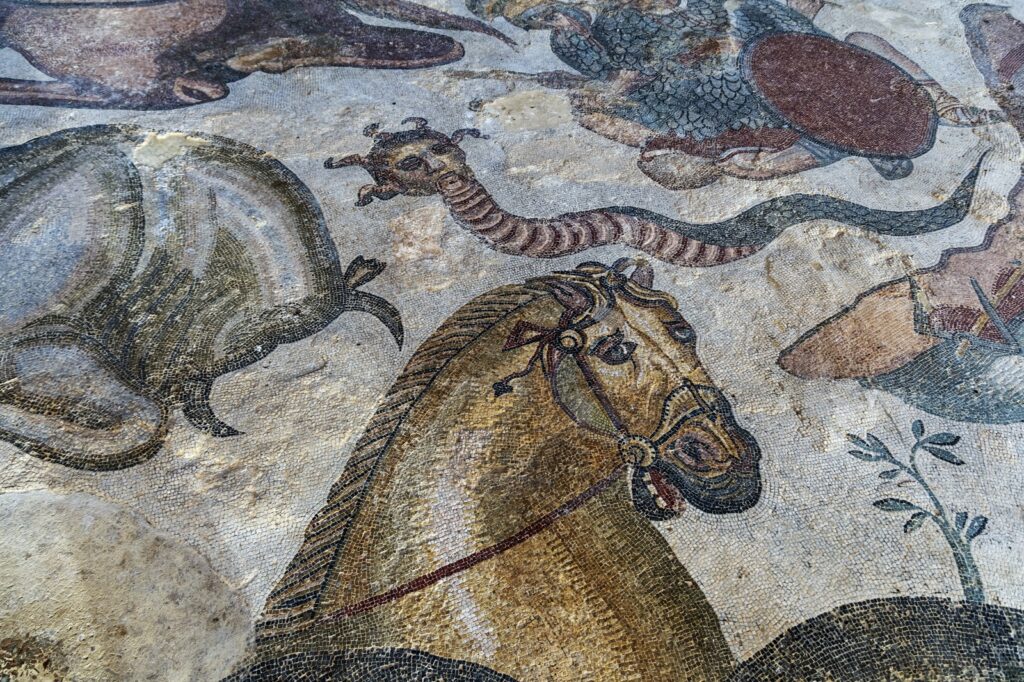 The careful observation of the scenes and the type of content leads us to think of an individual of the highest rank, who wanted to imprint in the mosaics a reflection of his culture and the role he played in Rome in the late empire.
The careful observation of the scenes and the type of content leads us to think of an individual of the highest rank, who wanted to imprint in the mosaics a reflection of his culture and the role he played in Rome in the late empire.
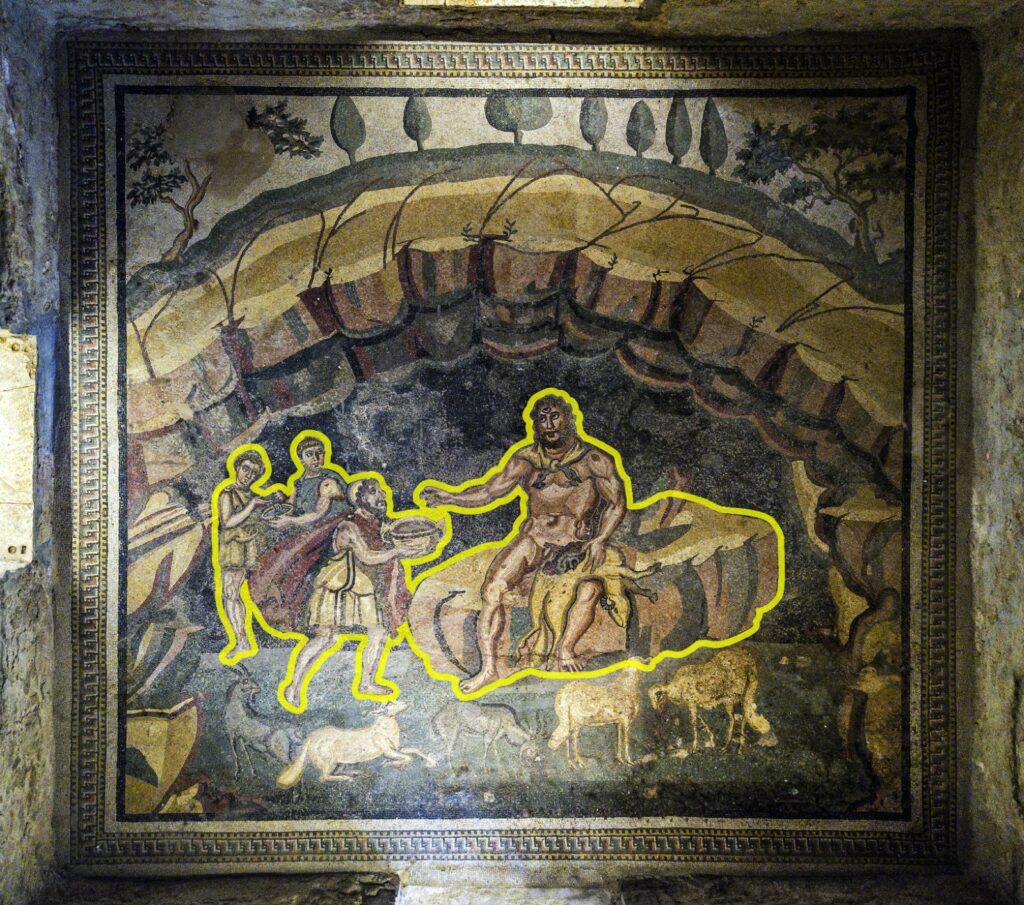
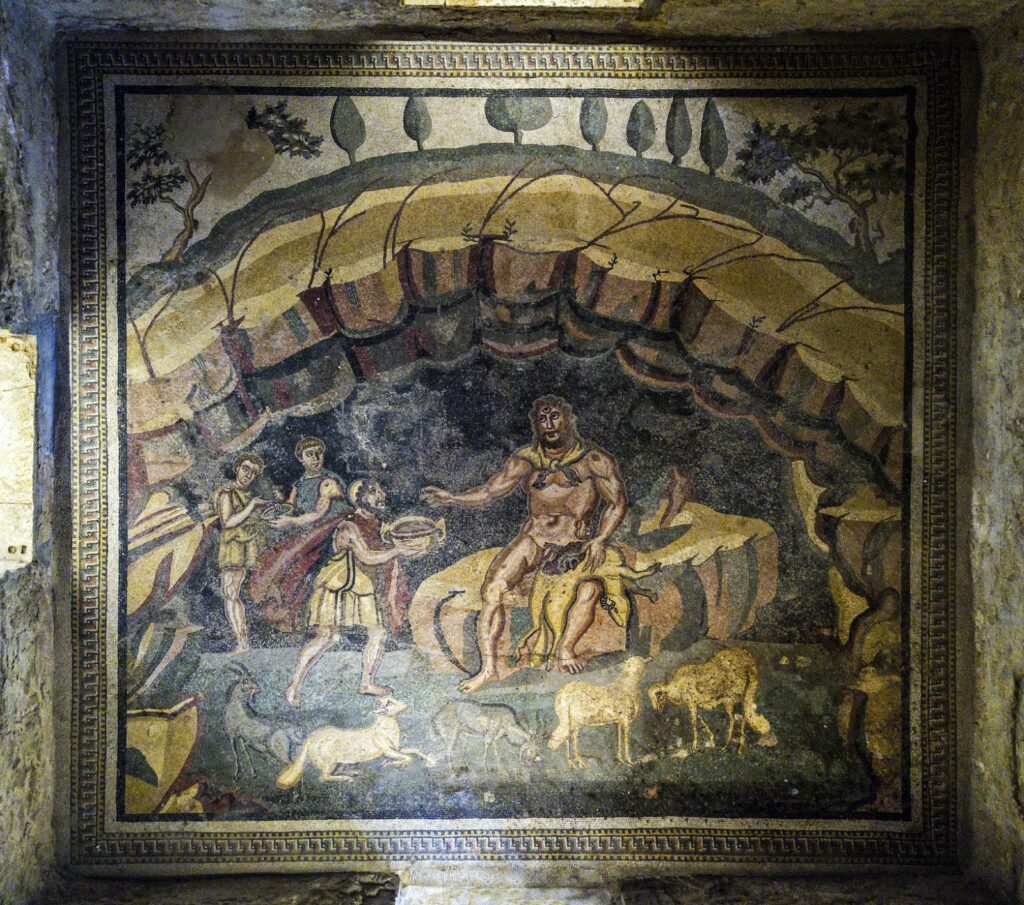
Various themes celebrate realistic scenes, which recall the figure of the dominus, master of the house, such as the mosaic of the
adventus
in the
vestibule
and the hall of the “small hunt”,
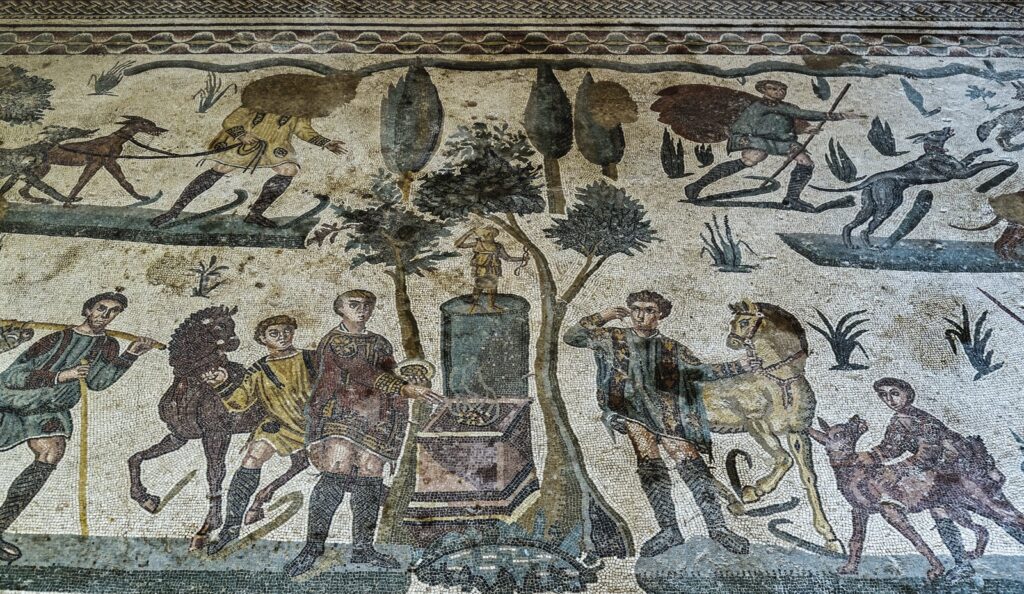 or which are reminiscent of Rome and its circus performances, such as the mosaic of the “great hunt”
or which are reminiscent of Rome and its circus performances, such as the mosaic of the “great hunt” 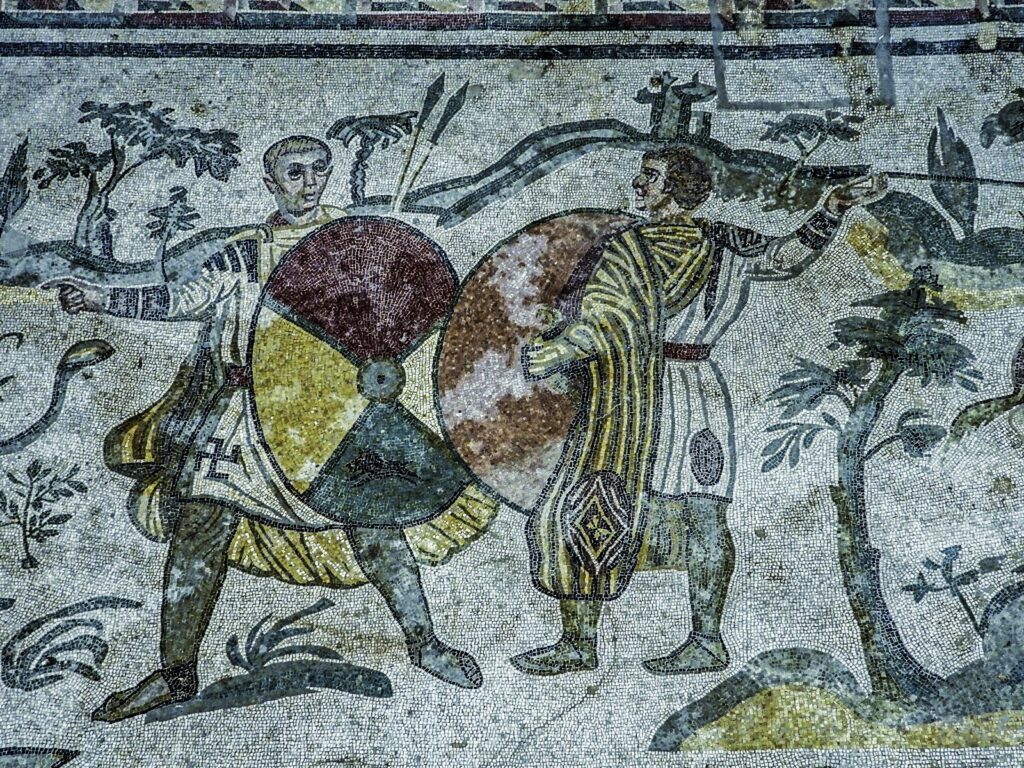 and the
chariot race
and the
chariot race
in the
biapsidal hall
.
In the mythological scenes we also find a heroic celebration of the commissioner through images of the triumph of reason and virtue over the wild forces of nature: Hercules who defeats the giants, Orpheus who tames the land animals and Arion who tames the sea animals.
Finally, the generic scenes with busts depicting the seasons, or the xenia, hospitable gifts of fruit, birds or fish, together with the numerous scenes of fisherman or grape harvesting erotes, also attributable to an important figure who, through these subjects, sought to emphasise the productivity of his land.